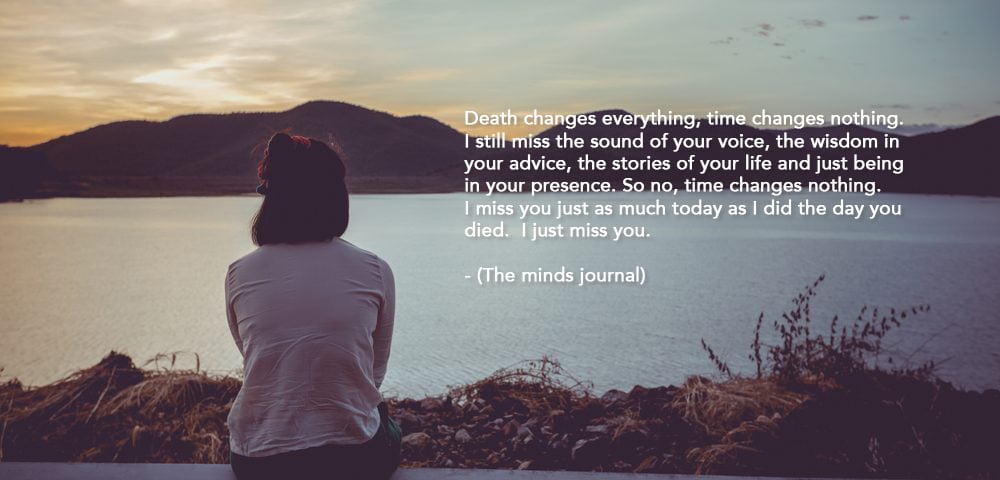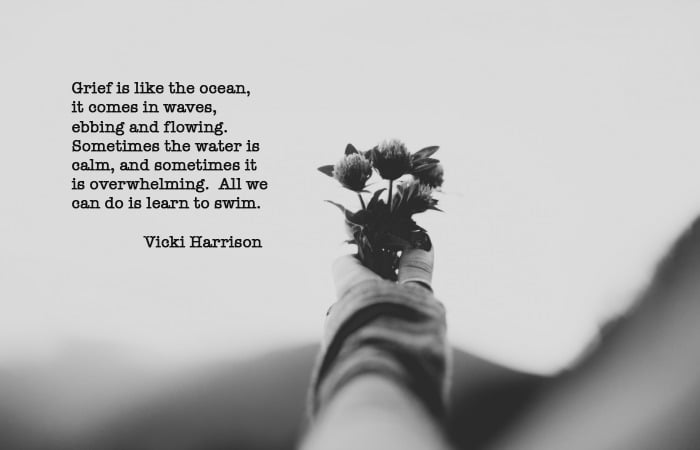Facing the loss of a loved one is one of life's most challenging experiences. It can feel sudden, overwhelming, and utterly devastating. During these times, it’s natural to be flooded with a range of emotions, and the process of grieving can take a toll both mentally and physically. Grief is deeply personal, and everyone experiences it differently. While there's no one-size-fits-all method to make the pain disappear, there are ways to help cope and find a path to healing.
Subscribe to our new five part e-mail series on well researched strategies to cope with grief. We sincerely hope it can help you find yourself and navigate through your emotions to find a better state of well being.

Embracing the Journey of Grief
Grieving the loss of a close friend, spouse, parent, or child can be one of the hardest challenges in life. Even if we think we are prepared for the loss, the reality can hit us harder than expected. When we realize that we will no longer share moments, conversations, or even just see our loved ones, it can lead to profound sadness and confusion. But remember, the intensity of this sadness will gradually diminish, and grieving is an essential part of the healing process.
Practical Steps to Cope with Grief
Allow Yourself to Feel: It’s crucial to let yourself experience the myriad of emotions that come with grief. Many people feel the need to hide their feelings and grieve alone, but it’s important to acknowledge that your feelings are valid. There’s no right or wrong way to feel when dealing with loss.
Share Your Feelings: Instead of burying your emotions, talk about them with friends or family members. Sharing your feelings can help you process and accept what has happened, preventing you from falling into denial, which can hinder your recovery.
Celebrate Their Life: Though it may seem difficult, finding ways to celebrate your loved one’s life can be healing. This could be through charitable donations in their name, naming a child after them, or any personal tribute that honors their memory and the unique relationship you shared.
Plan Your Next Steps: Grief can make it hard to function in daily life. While it’s a long and painful journey, planning your next steps can help you regain a sense of direction. Consider creating a memorial, choosing a meaningful burial option, or even opting for a diamond burial. A memorial diamond, created from your loved one’s ashes, can serve as a lasting tribute and a way to keep them close to you.
Finding Healing Through Memorial Diamonds
For many, a memorial diamond provides a tangible connection to their loved one. This beautiful, one-of-a-kind diamond can be a source of comfort and a symbol of enduring love. Clients have shared how these diamonds have helped them through their grief, providing peace and a way to honor their loved one’s memory.
Reaching Out for Support
One of the most powerful ways to navigate through grief is by connecting with others who have experienced a similar loss. Reaching out to someone who understands your pain can provide comfort and a sense of solidarity. Sharing your story and listening to theirs can be incredibly healing, offering new perspectives and coping strategies. Consider joining support groups, either in person or online, where you can connect with individuals who have faced similar situations. These communities can offer a safe space to express your feelings and receive support from those who truly understand.
The Path Forward
Grief doesn’t go away immediately; it takes time. The pain of losing someone dear is indescribable, and while it’s something most people will face, it’s important to find ways to celebrate the lives of those we’ve lost. Commemorate them in ways they would have appreciated and cherish the happy moments you shared.
Conclusion
Diamonds last forever, just like the love for our loved ones. While the journey through grief is painful, with the right support and steps, it can become more bearable. Celebrate their lives, honor their memories, and find comfort in the unique ways you choose to remember them.
If you're interested in learning more about coping with grief, subscribe to our five-part email series on well-researched strategies. We hope it can help you navigate your emotions and find a better state of well-being.






